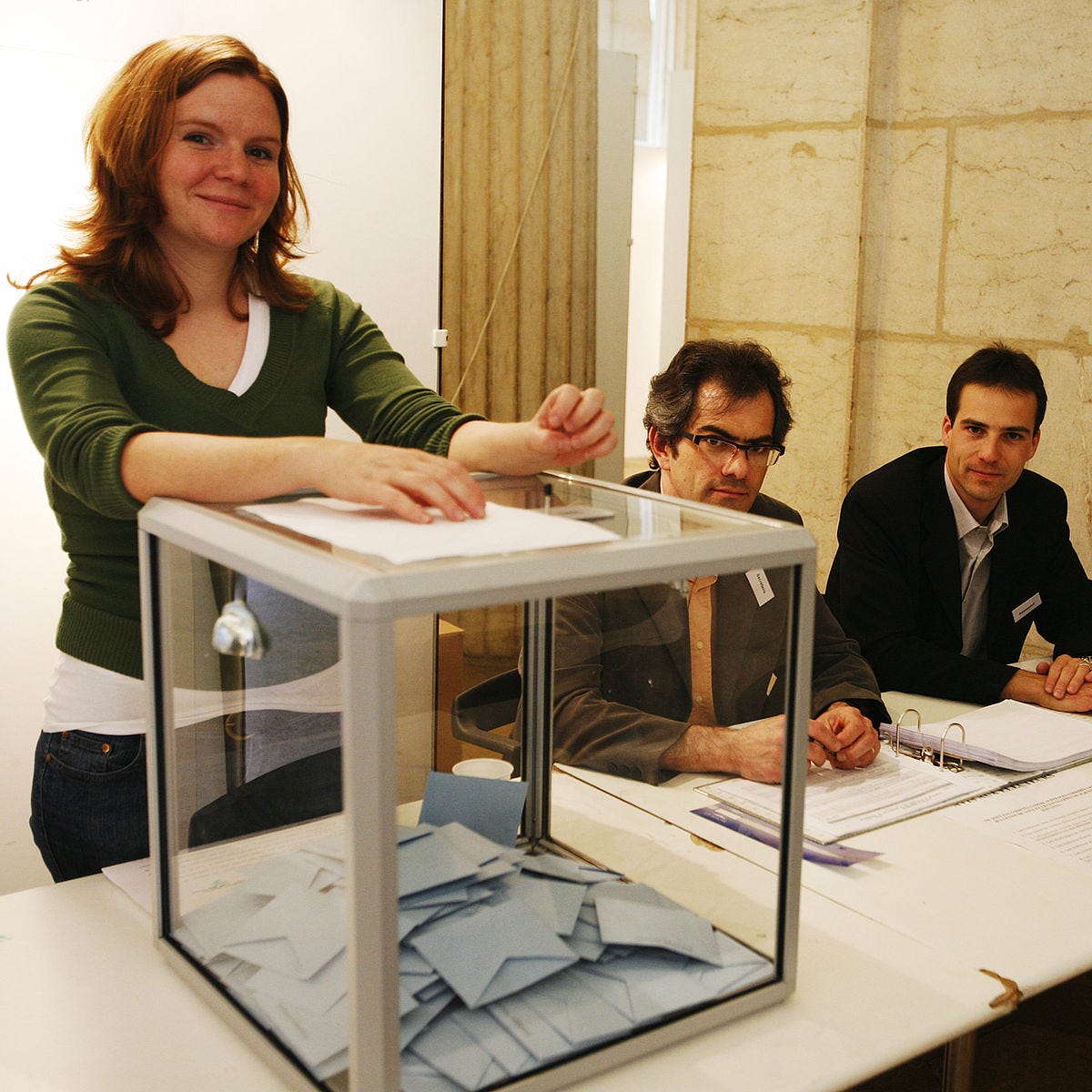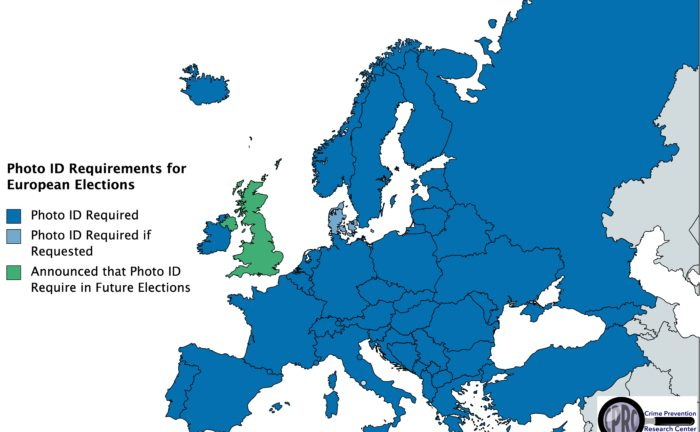Ricochet is the best place on the internet to discuss the issues of the day, either through commenting on posts or writing your own for our active and dynamic community in a fully moderated environment. In addition, the Ricochet Audio Network offers over 50 original podcasts with new episodes released every day.
 What Democrats Don’t Want You to Know About France’s Election
What Democrats Don’t Want You to Know About France’s Election
Being in France the past week, I’ve paid more attention than usual to their presidential election, which occurs today. Not just the closing messages or the strategies and tactics employed in the final debate last Tuesday, although I give an edge to Macron. He was aggressive in their final debate and much is being made in the final days of LePen’s party reimbursing a sanctioned Russian defense contractor about $12 million in contributions. Putin is very much an issue here in France.
In one sense, it really doesn’t matter to most Americans who wins the election. French tour guides I’ve heard from are mostly disappointed that the election is a replay of five years ago, when Emmanuel Macron, the young “fresh face” leading the new “En Marche!” Party, swept into the Elysee Palace by a two-to-one margin over the “National Front” party’s candidate, Marine LePen.

It is interesting that the French media, parroted by the mainstream European and American media, refer to her as the “far-right” candidate. Other than immigration, her positions are further to the left than most Republicans. She’s focused on “bread and butter” issues like the rising cost of living. Not unlike the US, she’s become the candidate of working-class voters, especially outside of Paris, home to nearly 20 percent of the nation’s population (about 60 million). Interestingly, she gathered considerable support from younger women who are struggling economically. She wants to restrict immigration, which is probably where the “far-right” monicker comes from.
As for the repeat match between Macron and LePen (who is on the ballot for a third consecutive presidential election), one tour guide I met said he will have to decide between “tweedledee and tweedledum.”
But as a former poll worker and local election official, I have focused more on the process of voting in France.
Democrats today absolutely do not want you to notice many of their features.
While 18-year-old citizens are automatically enrolled (registered) and assigned a voting station, usually an official government office, such city or county government offices everyone is required to provide voter identification when voting.
And not just any voter “identification,” which is most US states doesn’t include a photo – a utility bill with your name and address that matches your registration is all that you need. In France, your proof of identity must include a photo (usually a passport or driver’s license). In small communities of under 1,000 people – where people know each other – a voter registration card will suffice.
And you vote on Election Day, which is always on Sunday – no early voting.
No voting by mail, with extremely limited exceptions.
Expats living overseas who have registered with the local consulate can arrange to vote at the consulate. France has temporarily allowed ill and at-risk individuals to vote absentee.
France until 1975 allowed absentee balloting by mail. Economist John Lott Jr., writing recently for Real Clear Investigations, explains why: “On the mainland, France banned mail-in voting in 1975 because of massive fraud in the island region of Corsica, where postal ballots were stolen or bought and others were cast in the names of dead people.”
Even the process of voting has an air of seriousness and formality. From Angloinfo.com:
“On polling day, go to the appropriate polling station taking:
- Voter registration card and proof of identity
- Or proof of identity (only)
- Or voter registration card (only) in communes with fewer than 1,000 inhabitants
“You will be given an envelope and the ballot papers of all candidates.
- Go into a polling booth and make the vote
- Place chosen ballot paper in the envelope
- On exiting the booth, before posting the vote in the ballot box, show voter registration card, and identity document. The registration card will be stamped
- Sign the register of voters
- Put the vote into the ballot box”
An election official also announces that “a vote” has been cast.

Machines are sometimes used, but they are not prevalent, apparently. Paper ballots only are used in Canada.
And long before you read this post, a winner will be announced. No waiting up to two weeks for ballots to magically arrive in the mail, or being “found” in the trunks of cars.
France, as do other European nations, allows for “proxy” voting in place of absentee mail ballots. That means designating someone to cast a vote on your behalf. But it is also not an easy process. You actually must show proof of your “issue,” including a letter from your employer or a doctor’s note. And the person you designate as your proxy must live in the same voting district (“commune”) that you do.
The one thing we have in common with France’s election — no compulsory voting. But turnout tends to be high in France. Having free and fair elections may help.
There are exceptions, obviously, but most European elections operate much the same way. You can look it up.





Preach it to the heavens!
As I write this, Democrat operatives are scheming to wreck the upcoming elections, repeating and “improving” on 2020’s result. As Biden once announced, the Democrats have “the most extensive voter fraud organization in history.” In 2022, it will be even better.
@soupguy thank you for the detailed discussion of how voting is done in France! It’s nice to see how this important responsibility of citizenship is handled in other nations, so that we can get some idea of what is common and working in other places.
Every election seems to be a choice between a Socialist/Communist or a Le Pen and someone else.
2022 — Macron defeats Le Pen
2017 — Macron defeats Le Pen
2012 — Socialist defeats Sarkozy
2007 — Sarkozy defeats Socialist
2002 — Chirac defeats Le Pen
1995 — Chirac defeats Socialist
1988 — Socialist defeats Chirac
1981 — Socialist defeats d’Estaing
1974 — d’Estaing defeats Socialist
1969 — Pompidou (Union of Democrats) defeats Poher (Republic Democratic Centre), exception?
1965 — de Gaulle defeats Socialist
1958 — de Gaulle defeats Communist (only electoral college election)
I guess Le Pen is gaining though:
1974 — 0.7% (Jean-Marie Le Pen)
1988 — 14.4% (Jean-Marie Le Pen)
1995 — 15% (Jean-Marie Le Pen)
2002 — 17.8% (Jean-Marie Le Pen)
2007 — 10.4% (Jean-Marie Le Pen)
2012 — 17.90% (Marine Le Pen)
2017 — 33.90% (Marine Le Pen)
2022 — 41.46% (Marine Le Pen)